
Bandung: The Paris of Java
Nestled in the heart of West Java, Bandung is a vibrant city known for its cool climate, colonial architecture, and lush landscapes. Often referred to as the 'Paris of Java' due to its European influences, this city offers a unique blend of cultural heritage and modern attractions. Start your journey in the city's historic center, where you can explore the iconic Gedung Sate, an impressive government building with a distinctive central spire. Nearby, the Braga Street is a must-visit, lined with Dutch colonial buildings, chic cafes, and art galleries. This area is a testament to Bandung's rich history and cosmopolitan vibe. For nature enthusiasts, Bandung is a gateway to stunning volcanic landscapes and tea plantations. The Tangkuban Perahu volcano offers a dramatic view of its crater, while the Ciwidey area is home to the serene Kawah Putih, a picturesque crater lake with milky blue water. Don't miss the lush tea gardens of Puncak, where you can enjoy a refreshing walk or sip on freshly brewed tea. Bandung is also a shopper's paradise, famous for its factory outlets and bustling markets. The Jalan Riau and Dago areas are popular shopping destinations where you can find trendy clothing at bargain prices. Food lovers will delight in Bandung's culinary scene, which features a mix of local Sundanese dishes and international cuisines. Be sure to try local specialties like batagor (fried fish dumplings) and nasi timbel (rice wrapped in banana leaves). Whether you're exploring its historical sites, natural wonders, or indulging in retail therapy, Bandung promises an unforgettable experience for every traveler.
Local tips in Bandung
- Visit Gedung Sate early in the morning to avoid crowds and enjoy cooler temperatures.
- Bring a jacket or sweater, as Bandung's climate can be surprisingly cool, especially in the evening.
- Negotiate prices at local markets and factory outlets for the best deals.
- Try to visit Kawah Putih on a weekday to avoid the weekend rush.
- Use ride-hailing apps like Grab or Gojek for convenient transportation around the city.
Neighbourhoods in Bandung
Bandung: The Paris of Java
Nestled in the heart of West Java, Bandung is a vibrant city known for its cool climate, colonial architecture, and lush landscapes. Often referred to as the 'Paris of Java' due to its European influences, this city offers a unique blend of cultural heritage and modern attractions. Start your journey in the city's historic center, where you can explore the iconic Gedung Sate, an impressive government building with a distinctive central spire. Nearby, the Braga Street is a must-visit, lined with Dutch colonial buildings, chic cafes, and art galleries. This area is a testament to Bandung's rich history and cosmopolitan vibe. For nature enthusiasts, Bandung is a gateway to stunning volcanic landscapes and tea plantations. The Tangkuban Perahu volcano offers a dramatic view of its crater, while the Ciwidey area is home to the serene Kawah Putih, a picturesque crater lake with milky blue water. Don't miss the lush tea gardens of Puncak, where you can enjoy a refreshing walk or sip on freshly brewed tea. Bandung is also a shopper's paradise, famous for its factory outlets and bustling markets. The Jalan Riau and Dago areas are popular shopping destinations where you can find trendy clothing at bargain prices. Food lovers will delight in Bandung's culinary scene, which features a mix of local Sundanese dishes and international cuisines. Be sure to try local specialties like batagor (fried fish dumplings) and nasi timbel (rice wrapped in banana leaves). Whether you're exploring its historical sites, natural wonders, or indulging in retail therapy, Bandung promises an unforgettable experience for every traveler.
When is the best time to go to Bandung?
Iconic landmarks you can’t miss
Alun-Alun Bandung
Explore Alun-Alun Bandung, a vibrant city park blending culture, relaxation, and stunning views in the heart of West Java, Indonesia.
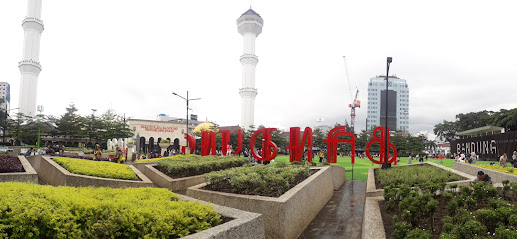
Paris Van Java
Explore Paris Van Java: A premier shopping mall in Bandung, blending retail, dining, and entertainment amidst stunning architecture.
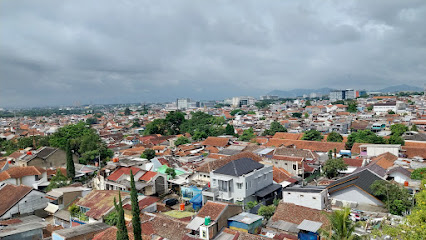
The Great Asia Africa
Discover the vibrant cultures of Asia and Africa at The Great Asia Africa, a unique tourist attraction in West Java, Indonesia, perfect for families and cultural enthusiasts.
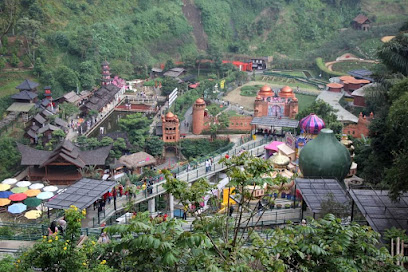
Monumen Perjuangan Rakyat Jawa Barat
Explore the Monumen Perjuangan Rakyat Jawa Barat, a historical landmark in Bandung that honors the spirit and struggle of the West Javanese people.
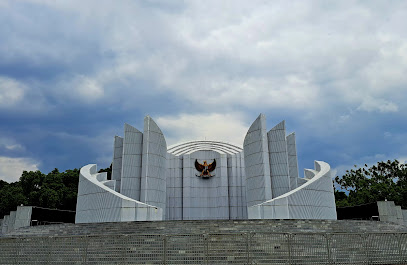
Taman Hutan Raya Ir. H. Djuanda
Explore the lush landscapes and rich biodiversity of Taman Hutan Raya Ir. H. Djuanda, a premier botanical garden in Bandung, West Java.
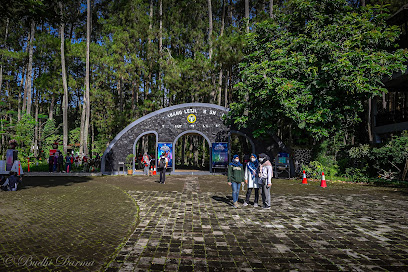
Museum Geologi
Explore the fascinating geological history of Indonesia at Museum Geologi, a must-visit destination in Bandung for nature and history lovers.
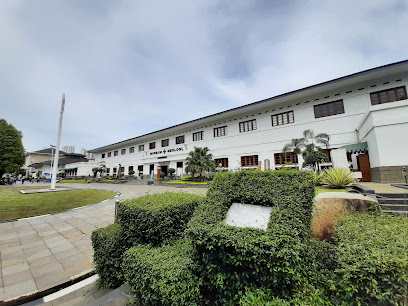
Taman Balai Kota Bandung
Discover the lush serenity of Taman Balai Kota Bandung, a vibrant city park that combines nature, culture, and community events in the heart of Bandung.
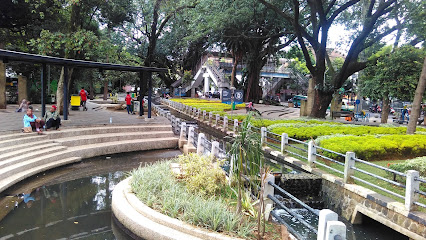
Asian African Conference Museum
Explore the profound history of the Asian African Conference at the Asian African Conference Museum in Bandung, a symbol of unity and cooperation.
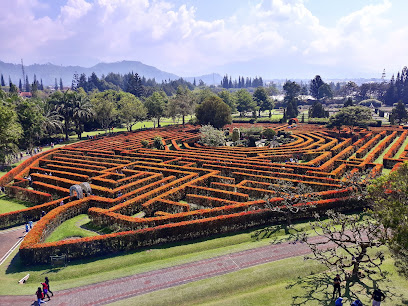
Tebing Karaton
Discover the breathtaking views and serene trails of Tebing Karaton in West Java, a hidden gem for nature lovers and adventure seekers.
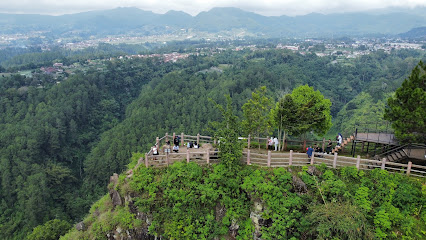
Taman Cibeunying
Explore Taman Cibeunying, Bandung's serene city park, perfect for relaxation, picnics, and capturing the essence of local culture amidst stunning landscapes.
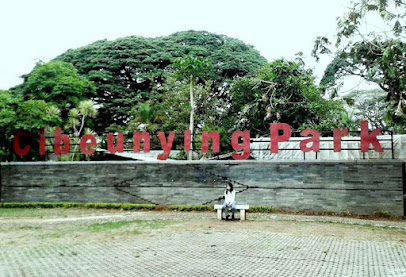
Gedung Sate
Explore the architectural beauty and historical significance of Gedung Sate, a landmark that embodies the cultural heritage of Bandung, Indonesia.
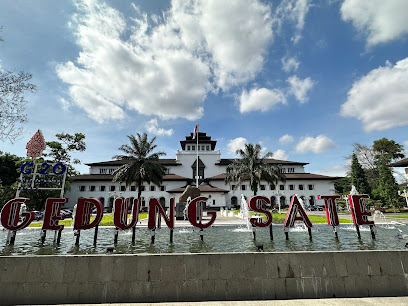
Saint Peter Cathedral Bandung
Discover the breathtaking beauty and spiritual tranquility of Saint Peter Cathedral in Bandung, a neo-Gothic masterpiece and cultural landmark.
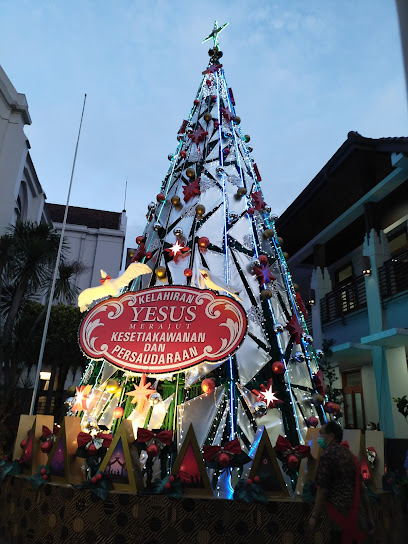
Taman Sejarah Bandung
Explore Taman Sejarah Bandung, a serene city park blending lush landscapes with rich history in the heart of West Java.
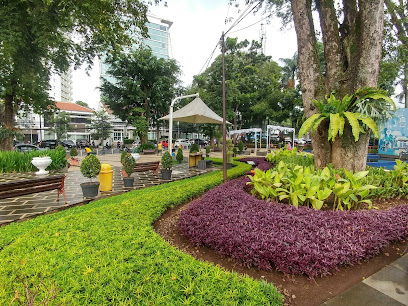
Taman Foto Bandung
Explore the beauty and vibrant atmosphere of Taman Foto Bandung, where nature meets fun in a picturesque urban park.
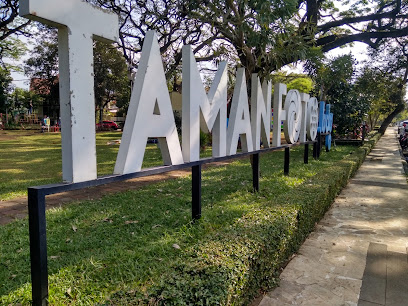
Gua Belanda
Explore the historical depths of Gua Belanda, a captivating cave in Bandung surrounded by lush forests, perfect for history lovers and nature enthusiasts alike.
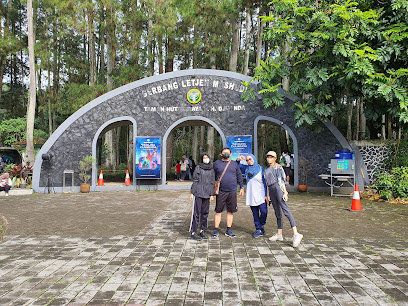
Unmissable attractions to see
Alun-Alun Bandung
Experience the beauty and culture of Bandung at Alun-Alun Bandung, a city park offering relaxation and vibrant local experiences in a picturesque setting.
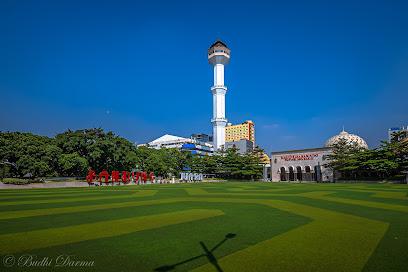
Farmhouse Susu Lembang
Discover the enchanting Farmhouse Susu Lembang, a charming tourist attraction in West Bandung offering fresh dairy delights and stunning views.
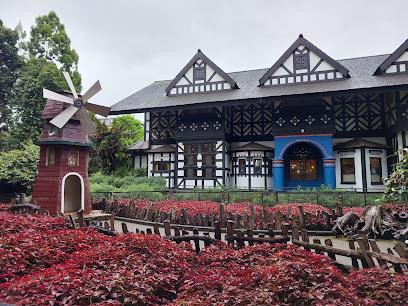
Floating Market Lembang
Experience the vibrant culture and unique flavors at Floating Market Lembang, a must-visit tourist attraction in West Java's scenic hills.
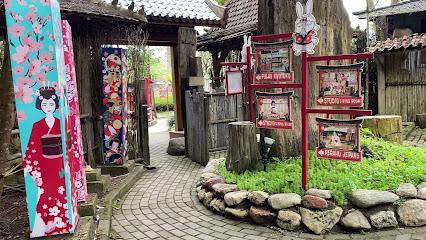
Orchid Forest Cikole
Explore the enchanting Orchid Forest Cikole in West Java, a botanical paradise filled with vibrant orchids, adventure activities, and breathtaking views.
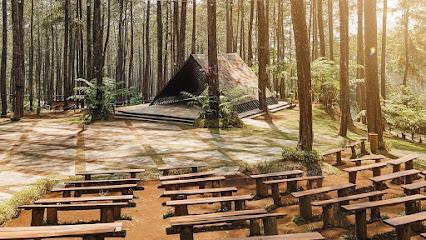
The Great Asia Africa
Experience the vibrant fusion of Asian and African cultures at The Great Asia Africa, a must-visit theme park in Lembang, West Java.
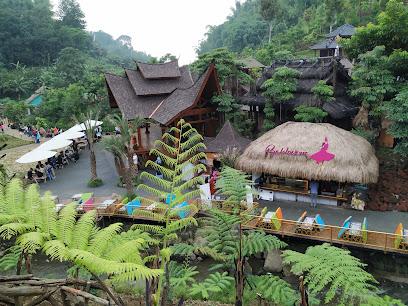
Monumen Perjuangan Rakyat Jawa Barat
Explore the Monumen Perjuangan Rakyat Jawa Barat, a historical landmark in Bandung celebrating the courage of West Java's heroes amidst beautiful gardens.
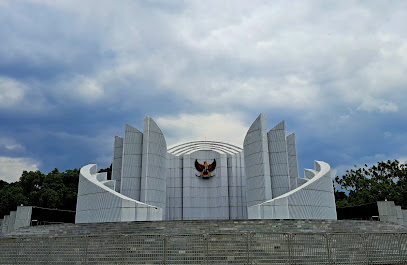
Dago Dreampark
Explore Dago Dreampark, a scenic recreation center in Lembang, West Java, offering thrilling attractions and stunning views for the whole family.
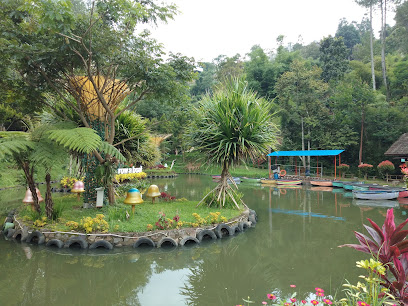
Museum Geologi
Discover the Earth's history at Museum Geologi in Bandung, where fascinating exhibits unveil geological wonders and ancient fossils.
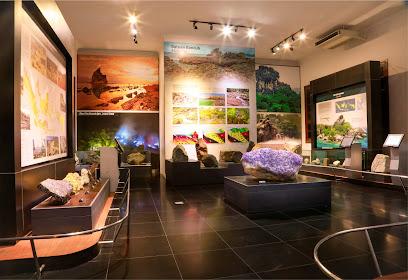
Saung Angklung Udjo
Experience the vibrant culture of Indonesia at Saung Angklung Udjo in Bandung, where traditional music and dance come alive through the enchanting angklung.
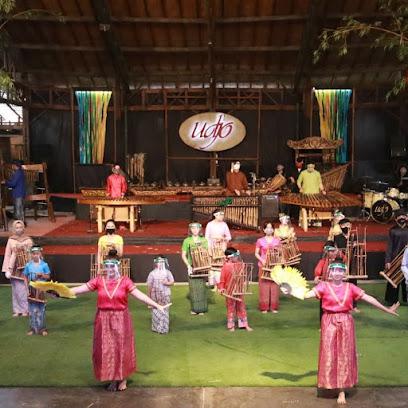
Pemandian Air Panas Ciater
Discover relaxation amidst nature at Pemandian Air Panas Ciater, Indonesia's premier hot spring retreat in West Java.
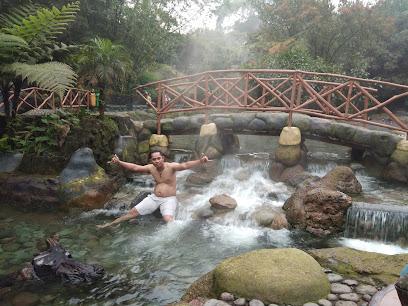
Taman Lansia
Taman Lansia: A serene city park in Bandung, offering lush greenery, peaceful strolls, and a tranquil escape from urban life.
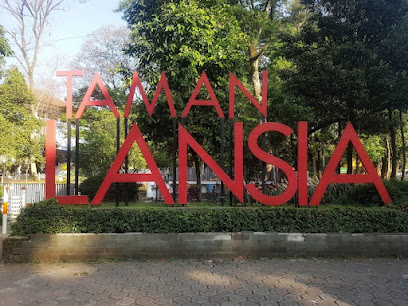
Asian African Conference Museum
Discover the rich history of the Asian African Conference Museum in Bandung, where nations united for freedom and cooperation.
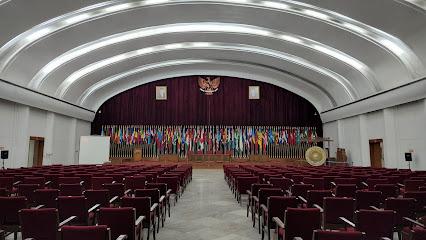
Asian African Conference Museum
Explore the Asian African Conference Museum in Bandung, where history comes alive through the stories of unity and cooperation between nations.
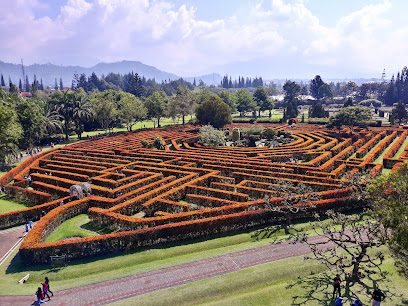
Tebing Karaton
Experience breathtaking views and serene nature at Tebing Karaton, a scenic park in West Java, Indonesia, perfect for outdoor adventures and relaxation.
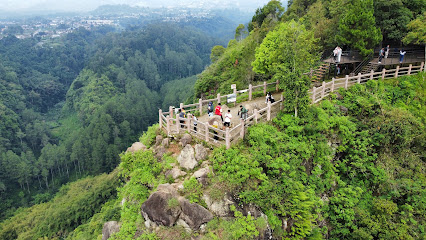
Sari Ater Hot Springs Ciater
Experience tranquility and natural healing at Sari Ater Hot Springs, a must-visit destination in West Java, Indonesia for relaxation and adventure.
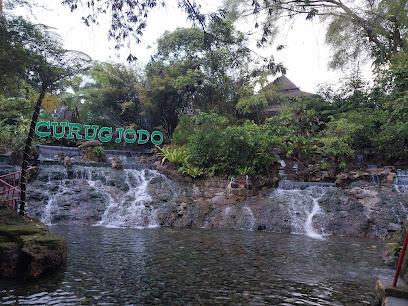
Essential places to dine
Karnivor Restaurant
Discover the ultimate meat lover's haven at Karnivor Restaurant in Bandung, serving exquisite steaks and delightful dishes in a welcoming atmosphere.
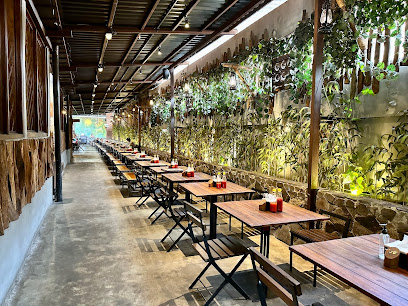
Batagor Kingsley
Experience authentic Sundanese cuisine at Batagor Kingsley in Bandung – home of mouthwatering batagor and more.
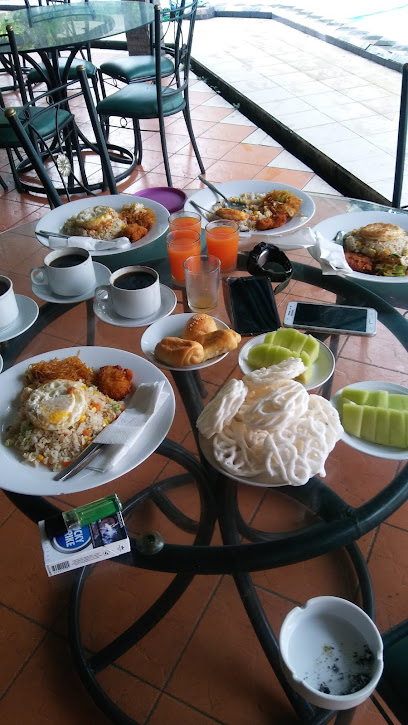
Nara Park Bandung
Experience the perfect fusion of Indonesian, Japanese, and Western cuisines surrounded by the natural beauty of Nara Park Bandung.
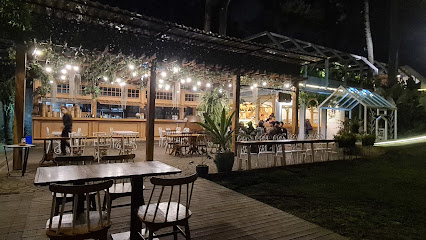
Skyline Best View Resto
Experience exquisite dining at Skyline Best View Resto in Bandung; savor delicious food while enjoying breathtaking panoramic views.
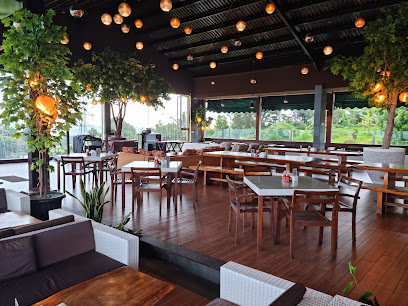
Atmosphere Resort Café
Discover exquisite Indonesian cuisine at Atmosphere Resort Café, where stunning views meet culinary excellence in Bandung.
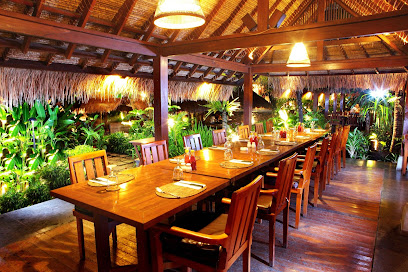
Hummingbird Eatery & Space
Discover Hummingbird Eatery & Space in Bandung: A haven of delicious breakfasts and vibrant café culture perfect for every foodie.
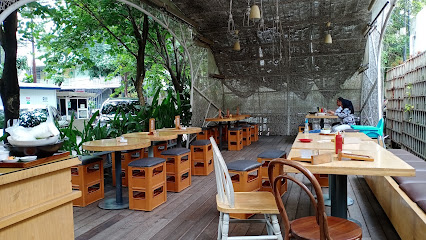
Gormeteria
Discover Gormeteria in Bandung: where Western cuisine meets Asian fusion in a stylish setting perfect for breakfast or brunch.
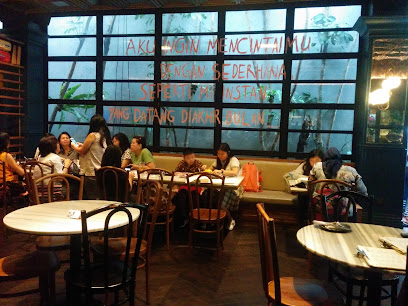
Braga Permai
Experience authentic Dutch cuisine in Bandung at Braga Permai - where tradition meets taste amidst charming historical surroundings.
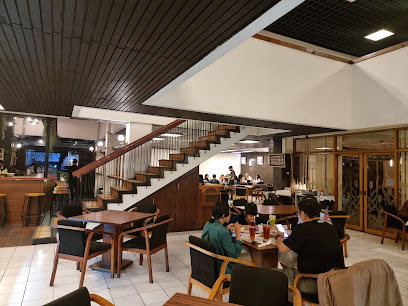
de sanirasa
Experience authentic Sundanese cuisine at De Sanirasa in Bandung – where tradition meets flavor in every dish.
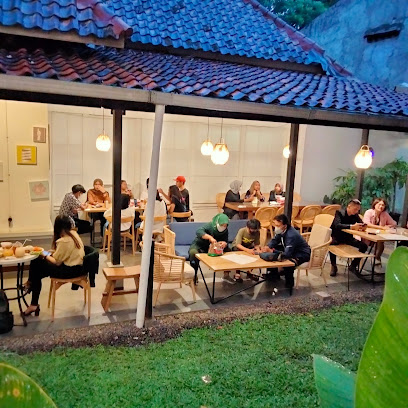
Kalpa Tree Dine and Chill
Discover culinary delights at Kalpa Tree Dine and Chill - where vibrant flavors meet a relaxing atmosphere in Bandung.
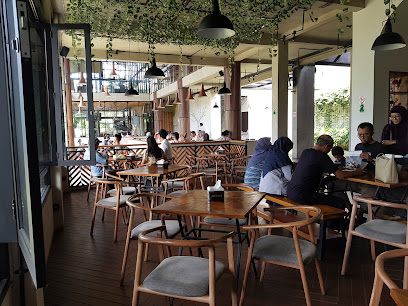
Miss Bee Providore
Discover the delightful culinary experience at Miss Bee Providore - where Western breakfast meets charming ambiance in Bandung.
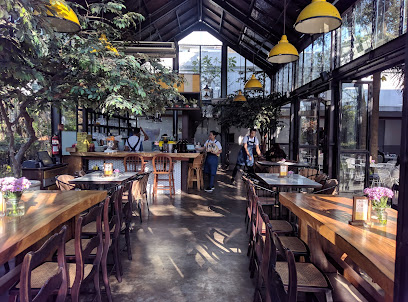
Warung Sate HM Harris
Discover authentic Indonesian flavors at Warung Sate HM Harris – the ultimate satay experience in Bandung.
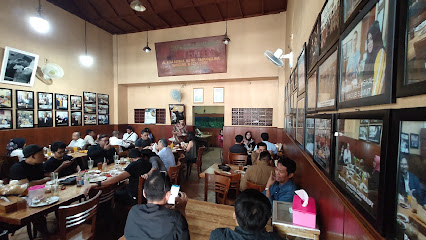
Shabu Kojo
Experience an authentic Japanese buffet with exquisite shabu-shabu and yakiniku dishes at Shabu Kojo in Bandung.
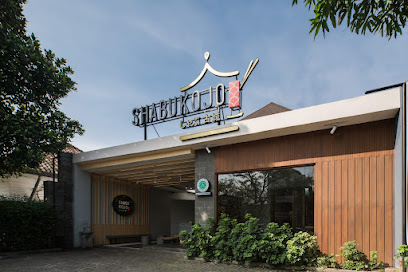
Congo Gallery & Cafe
Discover Congo Gallery & Cafe in Bandung: where exquisite dining meets captivating art in a stunning setting.
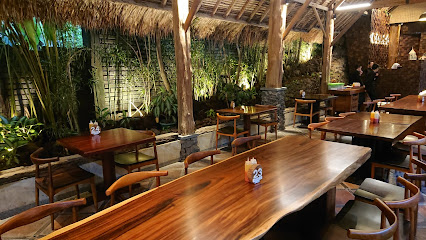
Cocorico Cafe and Resto
Discover Cocorico Cafe and Resto in Bandung - where delightful cuisine meets stunning natural views for an unforgettable dining experience.
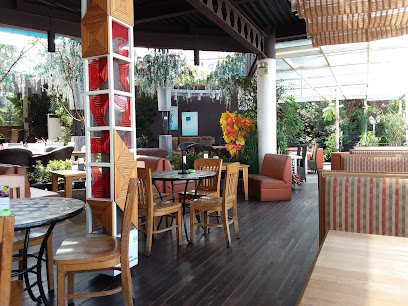
Markets, malls and hidden boutiques
Paris Van Java
Explore the enchanting Paris Van Java, Bandung's premier shopping mall, where shopping, dining, and entertainment come together in a vibrant atmosphere.
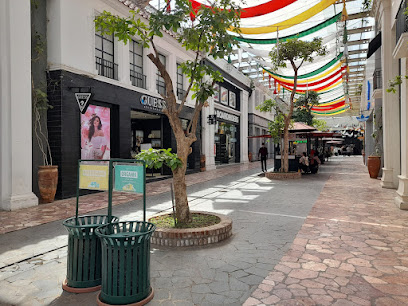
Ciwalk
Discover an exciting blend of shopping, dining, and entertainment at Ciwalk, Bandung's premier shopping mall offering unique experiences for all.
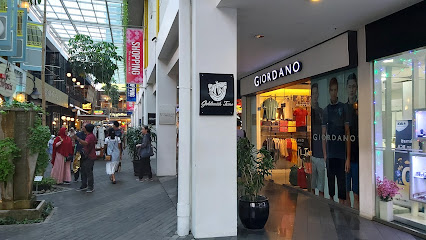
Bandung Indah Plaza
Explore Bandung Indah Plaza: A vibrant shopping mall in the heart of Bandung offering fashion, dining, and entertainment for all visitors.
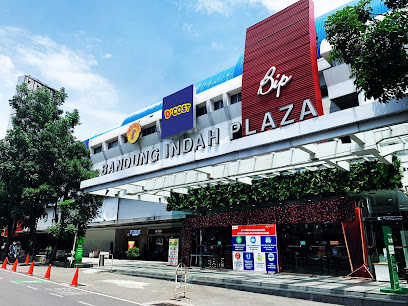
Festival Citylink
Discover the ultimate shopping experience at Festival Citylink, a vibrant shopping mall in Bandung offering diverse retail, dining, and entertainment options.
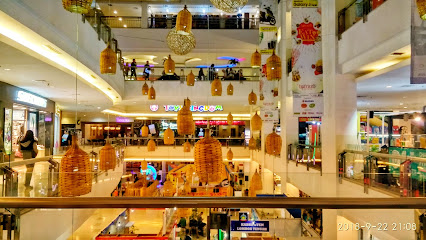
23 Paskal Shopping Center
Discover shopping, dining, and entertainment at 23 Paskal Shopping Center, Bandung's top destination for an unforgettable retail experience.
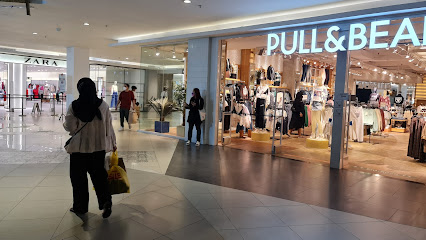
Braga Citywalk
Explore Braga Citywalk in Bandung for a unique shopping experience with diverse shops, delightful dining, and vibrant local culture.
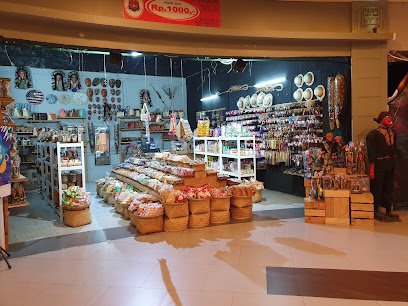
Rumah Mode Factory Outlet
Shop the latest trends at Rumah Mode Factory Outlet in Bandung, where quality meets affordability in a vibrant shopping atmosphere.
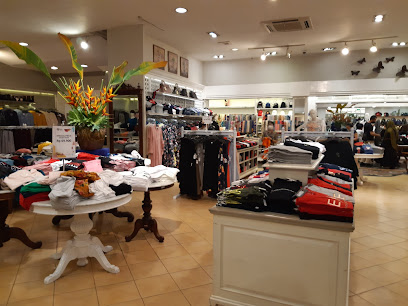
23 Paskal Hyper Square
Explore the bustling 23 Paskal Hyper Square, Bandung's ultimate shopping destination with diverse dining and entertainment options.
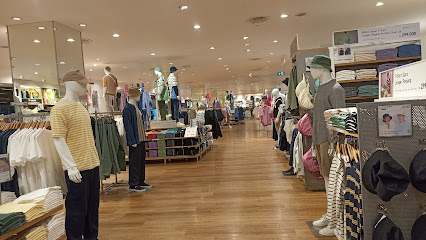
Pasar Kosambi
Discover the vibrant Pasar Kosambi in Bandung, where local culture, delicious street food, and unique shopping experiences await you.
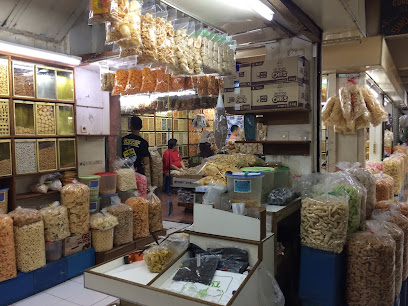
Yogya Sunda Department Store
Explore the vibrant Yogya Sunda Department Store in Bandung, where shopping meets local culture, offering a diverse range of products for every traveler.
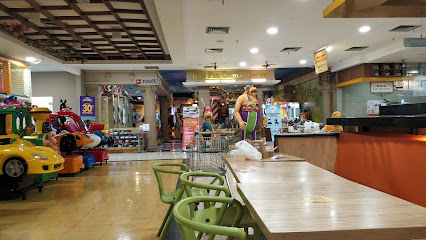
Heritage Lifestyle Hub Bandung
Explore Bandung's Heritage Lifestyle Hub for unique clothing that reflects local craftsmanship and vibrant culture.
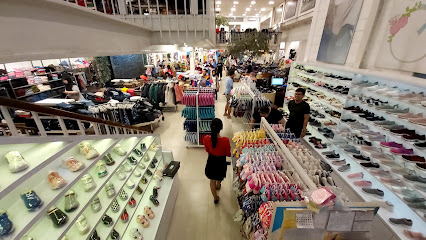
Parahyangan Plaza
Experience the essence of Bandung at Parahyangan Plaza, a unique shopping mall featuring diverse brands, dining, and entertainment options.
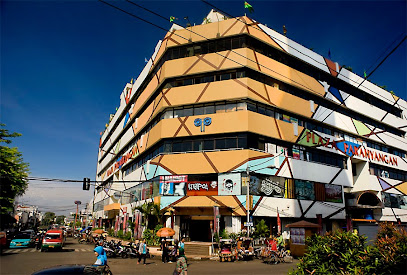
Trans Studio Mall Bandung
Explore the ultimate shopping and entertainment experience at Trans Studio Mall Bandung, where leisure and excitement meet in a vibrant atmosphere.
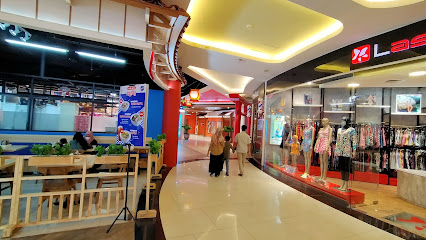
Click Square
Discover the essence of shopping and dining at Click Square, a lively mall in the heart of Bandung, where local culture meets modern retail therapy.
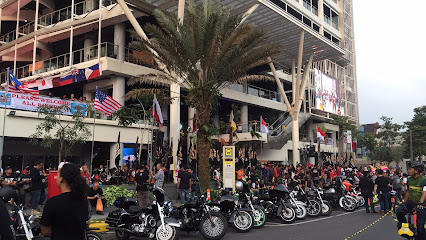
Barcelona Sport
Discover an extensive range of high-quality sportswear at Barcelona Sport, Bandung's premier destination for athletes and fashion enthusiasts alike.
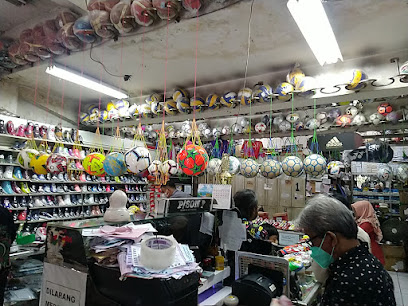
Essential bars & hidden hideouts
Shelter Cafe & Bar
Discover Shelter Cafe & Bar in Bandung, where the vibrant nightlife meets delightful cuisine in a cozy yet lively atmosphere.
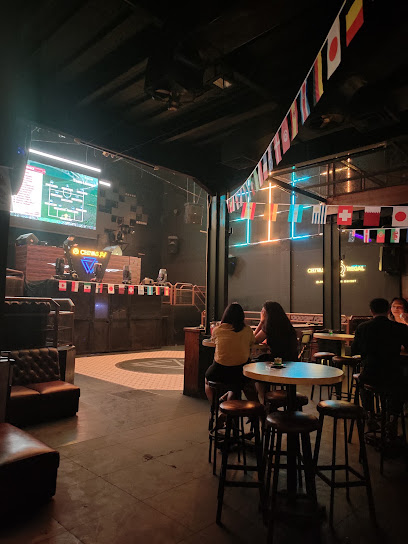
Roots Resto & Lounge
Discover the vibrant culinary scene at Roots Resto & Lounge in Bandung, where exceptional grill dishes meet live music and a lively atmosphere.
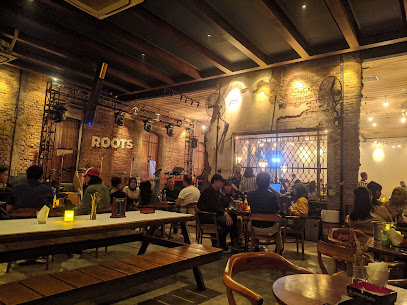
Halfway Bar
Experience the vibrant nightlife of Bandung at Halfway Bar, your go-to spot for drinks, bites, and great company.
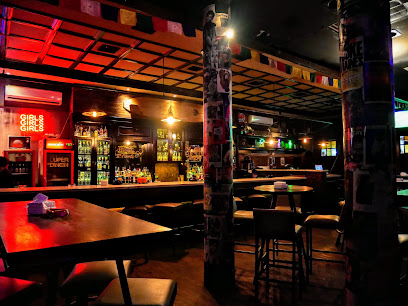
Wodka Kitchen & Bar
Experience the vibrant nightlife of Bandung at Wodka Kitchen & Bar, where creative cocktails and an energetic ambiance await.
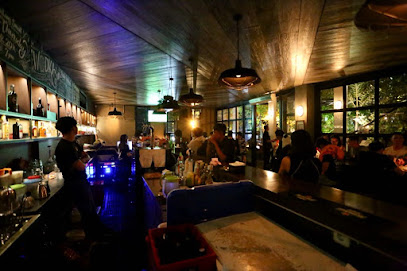
Oj's Tavern
Experience the vibrant nightlife at Oj's Tavern, Bandung's premier bar offering an extensive drink menu and lively ambiance.
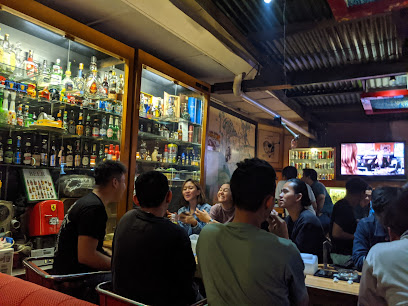
TRIANGLE BEER HOUSE
Discover the lively Triangle Beer House in Bandung, a vibrant bar offering an extensive beer selection and live music for an unforgettable night.
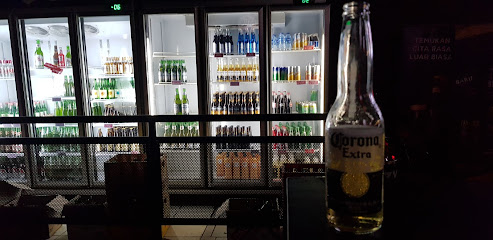
Vesper Sky Bar & Lounge
Discover the elegance of Vesper Sky Bar & Lounge, where stunning views meet expertly crafted cocktails in the heart of Bandung.
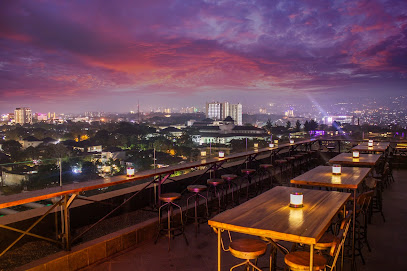
Queen Rose Lounge
Unwind at Queen Rose Lounge, Bandung's premier destination for karaoke, live music, and a vibrant nightlife experience.
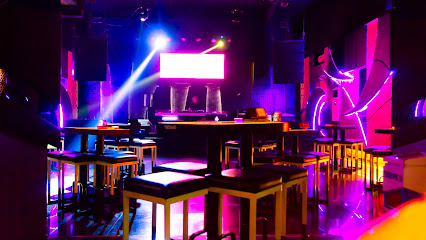
Nyonya Manis Drinking Club
Experience the vibrant nightlife of Bandung at Nyonya Manis Drinking Club, where tradition meets modernity in a unique bar ambiance.
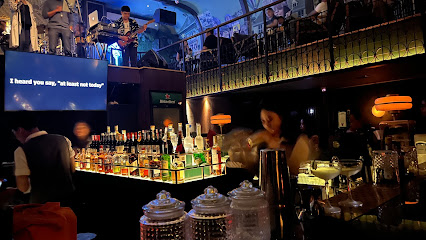
Tipsy Panda
Discover the vibrant nightlife at Tipsy Panda, a trendy bar in Bandung offering creative cocktails and a lively atmosphere for an unforgettable evening.
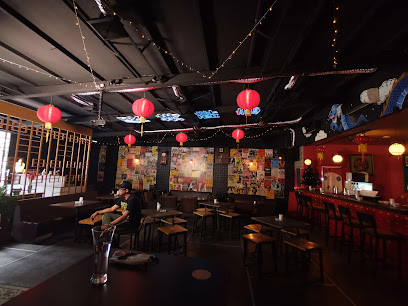
Bang Bang Kitchen & Soju Bar
Unwind at Bang Bang Kitchen & Soju Bar, where delectable food and live music create an unforgettable nightlife experience in Bandung.
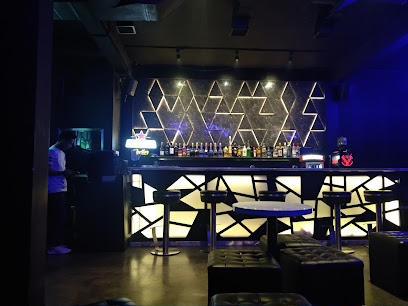
Klas Tap Bar
Klas Tap Bar in Bandung: Savor innovative cocktails on tap in a modern, vibrant atmosphere perfect for unwinding with friends.
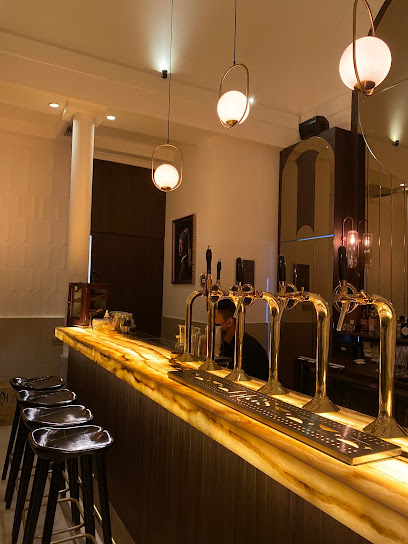
Warehouse - Exclusive Cocktail Bar
Discover the vibrant nightlife of Bandung at Warehouse - Exclusive Cocktail Bar, where unique cocktails and cozy ambiance await.
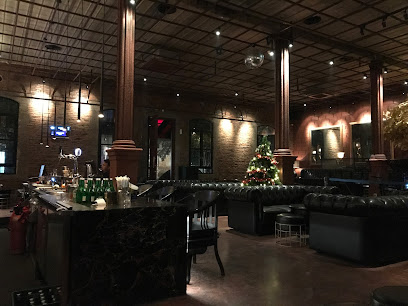
Upstairs Bar Bandung
Discover the vibrant ambiance and innovative cocktails at Upstairs Bar Bandung, where local flavors meet nightlife charm.
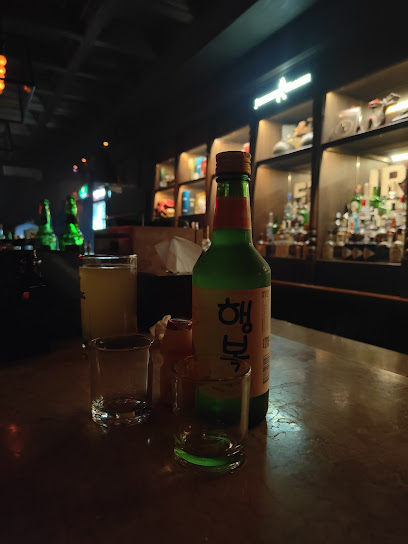
Black Panther
Discover the essence of Bandung's nightlife at Black Panther, where stunning views meet exquisite cocktails in a vibrant atmosphere.
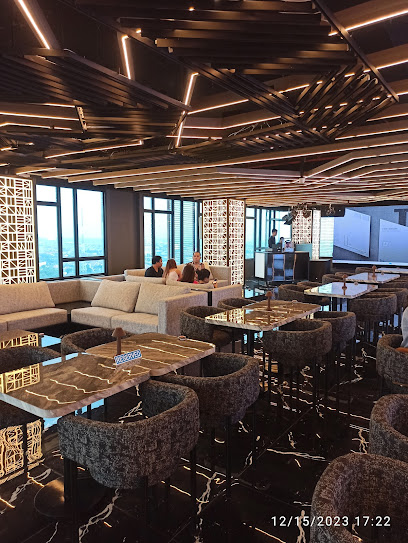
Local Phrases
-
- HelloHalo
[ha-loh] - GoodbyeSelamat tinggal
[se-la-mat ting-gal] - YesYa
[ya] - NoTidak
[tee-dak] - Please/You're welcomeTolong
[toh-long] - Thank youTerima kasih
[te-ree-ma ka-sih] - Excuse me/SorryMaaf
[mah-af] - How are you?Apa kabar?
[ah-pa ka-bar] - Fine. And you?Baik. Dan kamu?
[ba-ik. dan ka-moo] - Do you speak English?Apakah kamu bisa berbahasa Inggris?
[ah-pa-kah ka-moo bee-sa ber-ba-ha-sa ing-gris] - I don't understandSaya tidak mengerti
[sa-ya tee-dak men-ger-tee]
- HelloHalo
-
- I'd like to see the menu, pleaseSaya ingin melihat menu, tolong
[sa-ya in-gin me-li-hat me-new, toh-long] - I don't eat meatSaya tidak makan daging
[sa-ya tee-dak ma-kan da-ying] - Cheers!Salam sejahtera!
[sa-lam se-jah-te-ra] - I would like to pay, pleaseSaya ingin membayar, tolong
[sa-ya in-gin mem-ba-yar, toh-long]
- I'd like to see the menu, pleaseSaya ingin melihat menu, tolong
-
- Help!Tolong!
[toh-long] - Go away!Pergi!
[per-gee] - Call the Police!Panggil polisi!
[pang-gil po-li-see] - Call a doctor!Panggil dokter!
[pang-gil dok-ter] - I'm lostSaya tersesat
[sa-ya ter-se-sat] - I'm illSaya sakit
[sa-ya sa-kit]
- Help!Tolong!
-
- I'd like to buy...Saya ingin membeli...
[sa-ya in-gin mem-be-lee] - I'm just lookingSaya hanya melihat-lihat
[sa-ya hun-ya me-li-hat-li-hat] - How much is it?Berapa harganya?
[be-ra-pa har-ga-nya] - That's too expensiveItu terlalu mahal
[i-too ter-la-lu ma-hal] - Can you lower the price?Bisa diturunkan harganya?
[bee-sa dee-too-run-kan har-ga-nya]
- I'd like to buy...Saya ingin membeli...
-
- What time is it?Sekarang jam berapa?
[se-ka-rang jam be-ra-pa] - It's one o'clockJam satu
[jam sa-too] - Half past (10)Setengah (sepuluh)
[se-teng-ah (se-pu-loo)] - MorningPagi
[pa-gi] - AfternoonSore
[so-re] - EveningMalam
[ma-lam] - YesterdayKemarin
[ke-ma-rin] - TodayHari ini
[ha-ree ee-nee] - TomorrowBesok
[be-sok] - 1Satu
[sa-too] - 2Dua
[doo-ah] - 3Tiga
[tee-ga] - 4Empat
[em-pat] - 5Lima
[lee-ma] - 6Enam
[e-nam] - 7Tujuh
[too-joo] - 8Delapan
[de-la-pan] - 9Sembilan
[sem-bi-lan] - 10Sepuluh
[se-pu-loo]
- What time is it?Sekarang jam berapa?
-
- Where's a/the...?Dimana...
[dee-ma-na] - What's the address?Berapa alamatnya?
[be-ra-pa a-la-mat-nya] - Can you show me (on the map)?Bisa tunjukkan saya (pada peta)?
[bee-sa toon-jook-kan sa-ya (pa-da pe-ta)] - When's the next (bus)?Kapan yang berikutnya (bus)?
[ka-pan yang be-ru-tuh-nya (bus)] - A ticket (to ....)Selembar tiket (ke ....)
[se-lem-bar tee-ket (ke)]
- Where's a/the...?Dimana...
History of Bandung
-
Bandung, the capital of West Java province, was officially founded in 1810 by the Dutch East Indies colonial administration. The city was originally established as a supply stop for plantations located in the fertile and cooler highlands of the region.
-
In 1808, under the direction of Governor-General Herman Willem Daendels, the Great Post Road (De Grote Postweg) was constructed, stretching from west to east Java. This road passed through Bandung, boosting its significance as a transportation hub and facilitating trade and migration.
-
During the late 19th and early 20th centuries, Bandung experienced significant development under Dutch colonial rule. It became known as the 'Paris of Java' due to its European-style architecture, lush parks, and cafes. The city also became a center for education with the establishment of institutions like the Technische Hoogeschool te Bandoeng, now known as the Bandung Institute of Technology (ITB), in 1920.
-
One of the most significant events in Bandung’s history is the Asia-Africa Conference held in April 1955. This conference, held at the Gedung Merdeka, brought together leaders from 29 Asian and African countries to promote economic and cultural cooperation and oppose colonialism. The conference marked Bandung as a symbol of solidarity and independence movements across the two continents.
-
After Indonesia gained independence in 1945, Bandung continued to grow and modernize. The city became an important industrial and educational center. It also maintained its cultural heritage, featuring a blend of Sundanese traditions and modern influences.
-
Today, Bandung is a bustling metropolis known for its vibrant arts scene, diverse culinary offerings, and thriving fashion industry. It remains a popular destination for both domestic and international tourists, who are drawn to its rich history, cool climate, and scenic landscapes.
Bandung Essentials
-
Bandung is accessible via several modes of transportation. The city is served by Husein Sastranegara International Airport, with domestic and limited international flights. Alternatively, Soekarno-Hatta International Airport in Jakarta is around 3-4 hours away by car or train. Bandung is well-connected by train from major cities like Jakarta and Surabaya. Long-distance buses also operate routes to Bandung from various parts of Java.
-
Bandung offers various modes of transportation. Taxis and ride-hailing services like Grab and Gojek are widely available. Public buses (Damri and Trans Metro Bandung) cover many routes within the city. For a local experience, try angkot (minivans) that follow specific routes. Renting a motorbike or car is also an option for exploring at your own pace. Traffic can be heavy, especially during weekends and holidays, so plan accordingly.
-
The official currency in Indonesia is the Indonesian Rupiah (IDR). Credit cards are accepted in most hotels, restaurants, and larger shops, but it's advisable to carry cash, especially in smaller establishments and markets. ATMs are widely available throughout the city. Currency exchange services can be found at the airport, banks, and authorized money changers.
-
Bandung is generally a safe city for tourists, but it is wise to stay vigilant. Avoid walking alone at night in unfamiliar areas. Pickpocketing can occur in crowded places like markets and public transport. Areas with higher crime rates targeting tourists include Braga Street and Cihampelas Walk. Always safeguard your belongings and avoid displaying valuables.
-
In case of emergency, dial 112 for immediate assistance. Major hospitals like Hasan Sadikin Hospital offer comprehensive medical services. Pharmacies are readily available for minor health issues. It's recommended to have travel insurance that covers medical emergencies. The local police can be reached at 110. Keep a list of important contacts and the address of your accommodation handy.
-
Fashion: Do dress modestly, especially when visiting religious sites. Avoid overly revealing clothing. Religion: Do respect local customs and religious practices. Remove your shoes and cover your head when entering mosques. Public Transport: Do be polite and offer your seat to elderly passengers. Don’t eat or drink on public transport. Greetings: Do greet people with a smile and a handshake. Using both hands is a sign of respect. Eating & Drinking: Do try local dishes and accept food offerings graciously. Don’t use your left hand for eating or passing food, as it is considered impolite.
-
To experience Bandung like a local, visit traditional markets like Pasar Baru for fresh produce and local goods. Enjoy a stroll along Jalan Braga, famous for its historical buildings and vibrant nightlife. Take a day trip to Lembang for its cool climate and attractions like the Floating Market and Farm House. Engage with locals who are generally friendly and eager to share their culture. Don't miss trying Sundanese cuisine, especially nasi timbel and batagor (fried dumplings).
Trending Landmark in Bandung
-
Alun-Alun Bandung
-
Paris Van Java
-
The Great Asia Africa
-
Monumen Perjuangan Rakyat Jawa Barat
-
Taman Hutan Raya Ir. H. Djuanda
-
Museum Geologi
-
Taman Balai Kota Bandung
-
Asian African Conference Museum
-
Tebing Karaton
-
Taman Cibeunying
-
Gedung Sate
-
Saint Peter Cathedral Bandung
-
Taman Sejarah Bandung
-
Taman Foto Bandung
-
Gua Belanda
Nearby Cities to Bandung
-
Things To Do in Jakarta
-
Things To Do in Semarang
-
Things To Do in Yogyakarta
-
Things To Do in Poon Saan
-
Things To Do in Flying Fish Cove
-
Things To Do in Drumsite
-
Things To Do in Settlement
-
Things To Do in Greta Beach
-
Things To Do in Surabaya
-
Things To Do in Bali
-
Things To Do in Kuching
-
Things To Do in Sentosa
-
Things To Do in East Coast Park
-
Things To Do in Marina Bay
-
Things To Do in Chinatown
















